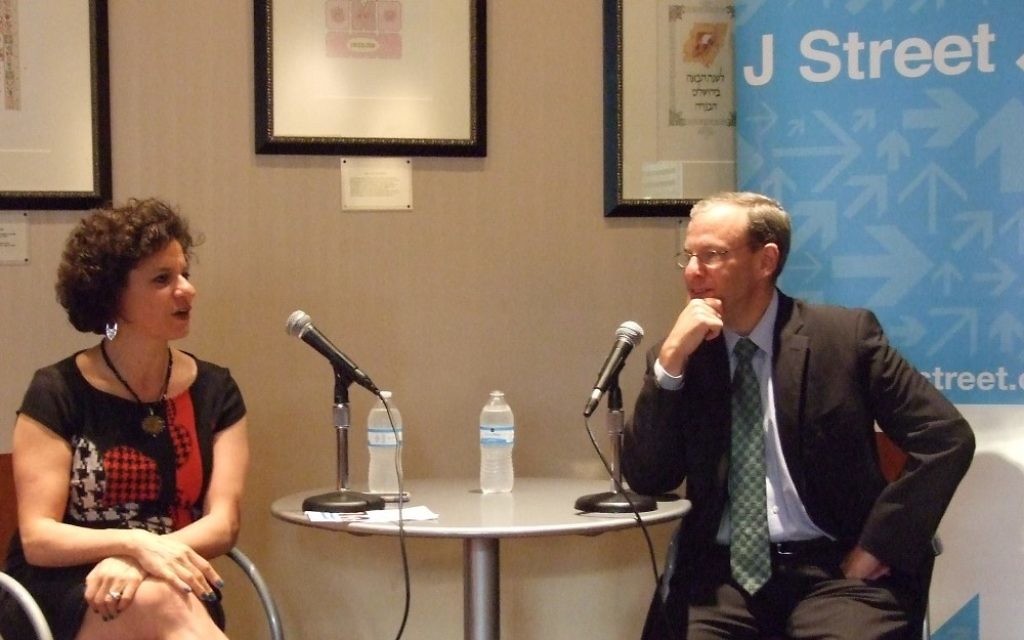J Street Head, Reporter Fear for Israel’s Future
Israelis and Palestinians need to stop looking back and start focusing on the future if they are ever to reach a lasting peace agreement because no one will ever win or surrender in the fight to own the past, J Street President Jeremy Ben-Ami said during a Yom HaAtzmaut-related discussion Wednesday night, May 11, at Ahavath Achim Synagogue.
“I prefer to look ahead,” Ben-Ami told the crowd of about 40 people, including incoming Jewish Federation of Greater Atlanta CEO Eric Robbins. “What do we do now?”

He said Israel has a choice between two paths: one that leads to peace and security alongside a Palestinian state and one that leads to the suppression of Arabs between the Jordan and the Mediterranean, sacrificing a commitment to democracy and to Jewish principles and becoming an international pariah.
Get The AJT Newsletter by email and never miss our top stories Free Sign Up
His partner in the conversation, Jodi Rudoren of The New York Times, said that after her four years as the newspaper’s Jerusalem bureau chief, she’s frightened by what she sees in Israel’s future. But the question to her is not what kind of nation the 68-year-old state will be when it approaches its 140th birthday but whether it will exist at all.
She noted the nearly fatal strife the United States faced when it was 68 years old in 1844, only 17 years away from the Civil War.
Meanwhile, she said, Israel has a real problem with Palestinians who are in their late teens and early 20s — those who don’t remember a time before the Oslo Accords of 1993 — because they don’t want a two-state solution. They believe that eventually all of Israel will be part of their state of Palestine, and they’re willing to wait for Israel’s demise.
The potential Palestinian leaders in their 40s also present a problem, Rudoren said, because they simply aren’t interested in politics or government.
“It should be their problem to solve, their state to build,” Rudoren said, but they’re more interested in conducting business. Besides, she said, they figure they’ll eventually get their own state anyway.
She said the Gaza war in 2014 set the peace process back many steps because each side lost confidence in the other. Most Israelis would happily trade the West Bank for peace, she said, “but they’re absolutely scared of what would happen.”
While Israel would not be in any existential danger from a Palestinian state, friendly or not, the creation of such a state would not end terrorism against Israelis, said Rudoren, who noted that she is not a J Street member and was not at the event in support of the organization.
Ben-Ami agreed that Israeli-Palestinian peace would not end terrorism, but he said he can’t imagine how it would make the problem worse. He also criticized the idea of unilateral action on the part of Israel to pull back and establish what it believes should be its permanent borders.
The fear of land-for-peace moves by Israel, Ben-Ami said, arose from the failure of unilateral moves, as when Israel pulled out of southern Lebanon and removed all troops and settlers from Gaza. Those actions just created vacuums for Hezbollah and Hamas to fill, he said.





comments